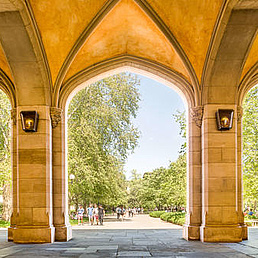Excellence in science
Humboldt-Universität is one of the most important universities in the German-speaking world thanks to its numerous projects in cutting-edge research and teaching as well as its renowned international networks. Its research achievements are reflected in the awards received by numerous academics and in a large number of research groups and programmes.

Excellence in science
Humboldt-Universität is one of the most important universities in the German-speaking world thanks to its numerous projects in cutting-edge research and teaching as well as its renowned international networks. Its research achievements are reflected in the awards received by numerous academics and in a large number of research groups and programmes.
Science X Society
Under the motto Open Humboldt, we share our knowledge, expertise and infrastructure beyond the campus boundaries. We want to inform and inspire people, promote and enable participation.

Standards in research & teaching
Humboldt-Universität is committed to the highest standards of quality in research and teaching, which we continuously review and improve. According to Humboldt's guiding principle, research and teaching are closely linked: students and teachers expand knowledge together.
The participatory teaching model reflects HU's understanding of education and creates a framework for good teaching that can be experienced in everyday university life and encourages students to meet current and future teaching and learning requirements and help shape innovations.
In research, the statutes on good scientific practice form the binding standard for integrity, transparency and supervision. Scientists work lege artis, i.e. according to the rules of the art. This includes scientific integrity, correct citation, careful documentation and the disclosure of research data and results (open access). Compliance with these standards is supported by a central ombudsman's office.






